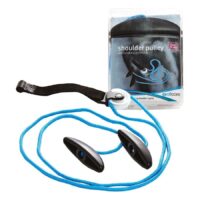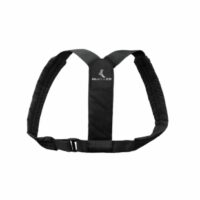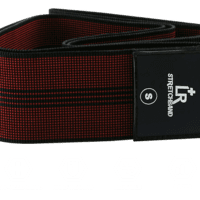Shoulder Pain Relief
Article by John Miller

Shoulder Pain Relief and Treatment Guide
What To Do? When?
Shoulder pain can significantly hinder your daily activities, leading to frustration and discomfort. To manage this pain effectively, it’s crucial to understand the underlying causes. Injury, overuse, or conditions such as arthritis can lead to shoulder pain. When discussing treatment, a holistic approach often yields the best results.

Acute Shoulder Pain
Firstly, rest and ice can alleviate symptoms of minor injuries. Incorporating anti-inflammatory medications, with a doctor’s advice, can further reduce inflammation and pain. For more persistent pain, physiotherapy emerges as a pivotal treatment. It strengthens shoulder muscles and improves flexibility, addressing the root cause of the discomfort.
Chronic Shoulder Pain
Moreover, for chronic shoulder pain, exploring advanced treatment options becomes necessary. These may include steroid injections or even surgery for severe cases. However, it’s essential to consult with a healthcare professional to determine the most appropriate treatment for your specific condition.
Shoulder Pain Prevention
Preventive measures can also play a vital role in managing shoulder pain. Maintaining good posture, avoiding repetitive strain, and performing regular stretching exercises can prevent the onset of pain. Remember, early intervention is key to preventing shoulder issues from worsening. If you’re experiencing shoulder pain, seek professional advice to explore your treatment options and pave the way for a pain-free life.
Common Questions About Shoulder Pain
- When Should You Seek Medical Attention for Shoulder Pain?
- What are the Common Causes of Shoulder Pain?
- Shoulder Pain Relief and Treatment Guide
Rotator Cuff Syndromes
- What is the Rotator Cuff? How Does it Function?
- How to Identify a Torn Rotator Cuff and Seek Proper Treatment
- Tips for Accelerating Rotator Cuff Healing
Rotator Cuff Tears
- Diagnosing a Torn Rotator Cuff: Do You Need an MRI?
- Managing a Torn Rotator Cuff: Arm Mobility and Recovery
- Addressing Shoulder Blade Pain with a Torn Rotator Cuff
- Cortisone Injections: Can They Help Heal a Torn Rotator Cuff?
Shoulder Impingement & Bursitis
- Exploring the Shoulder Impingement Zone
- What’s the Relationship Between Rotator Cuff Impingement and Bursitis?
- Understanding Shoulder Bursitis: Causes, Symptoms & Management
Scapulohumeral Rythym
Frozen Shoulder
Shoulder Dislocation/Instability
AC Joint Separation
Swimmer’s Shoulder
- Unveiling the Causes of Swimmer’s Shoulder
- Prevention and Treatment Strategies for Swimmer’s Shoulder
Navigating Shoulder Pain: Your Action Plan
Addressing your shoulder pain effectively starts with a comprehensive assessment by a physiotherapist. This crucial step ensures a bespoke treatment plan that aligns with your unique needs, integrating hands-on techniques like massage and joint mobilisation to ease your discomfort and enhance mobility.
Embark on a Targeted Exercise Journey
Key to your recovery is exercise therapy, a mainstay in physiotherapy that zeroes in on fortifying the rotator cuff muscles—vital for shoulder stability. But it’s not just about strength; flexibility is equally important. Incorporating stretching routines relieves tension and fosters a supple shoulder joint.
Embrace Incremental Progress
The principle of progressive loading is a game-changer. By slowly ramping up activity levels, you protect your shoulder from undue stress during recuperation. Regular check-ins with your physiotherapist allow for fine-tuning your program, propelling you toward a complete recovery and a return to your daily grind.
A Collaborative Approach to Chronic Shoulder Pain
For persistent shoulder woes, physiotherapists might team up with other health experts, crafting a holistic strategy that could blend medical treatments with physiotherapy. The ultimate aim is holistic recovery—not only soothing your pain but also rectifying any limitations and empowering you with preventative strategies.
Innovative Pain Management Techniques
Physiotherapists might also turn to innovative methods like dry needling or TENS for pain control, setting the stage for you to perform exercises without the shadow of pain.
Empowering You with Knowledge
Education is power. Your physiotherapist will guide you through adopting ergonomic practices and safe lifting methods—wisdom that could revolutionise your day-to-day life and shield you from future injury.













































































